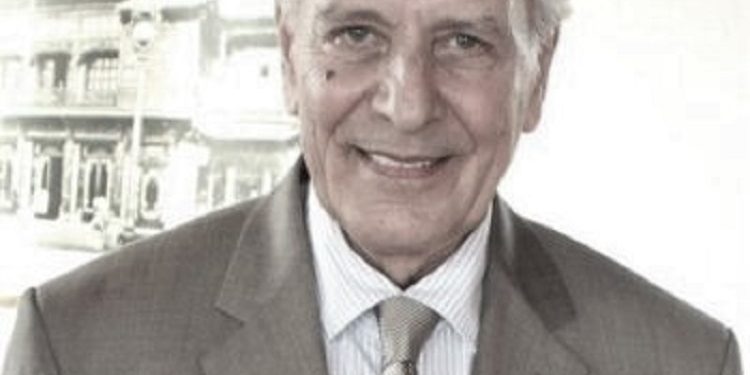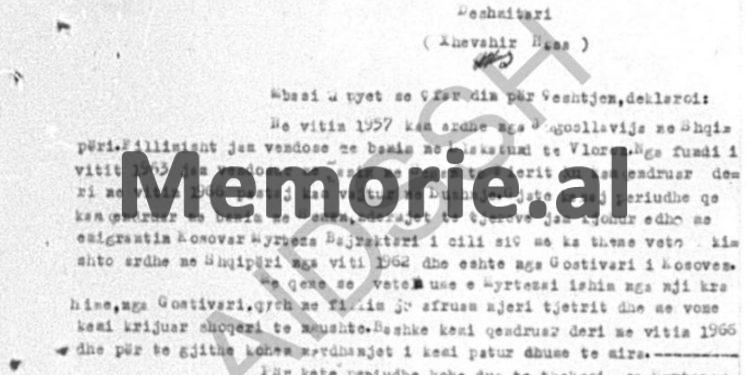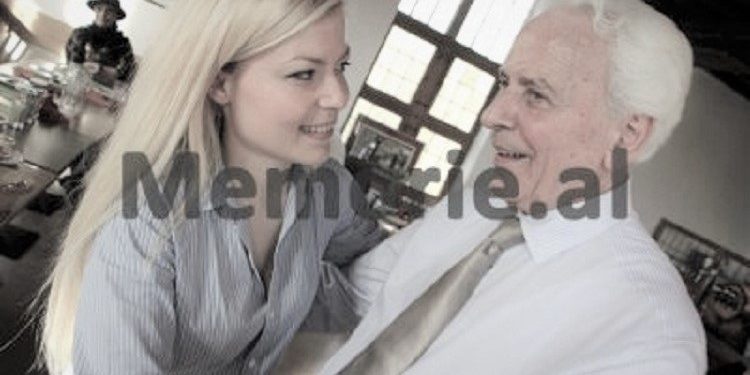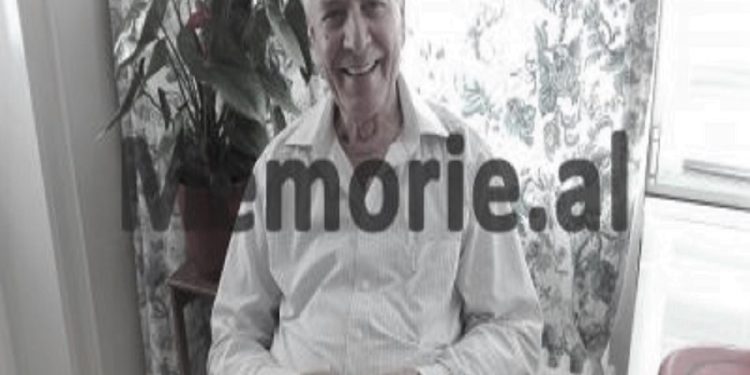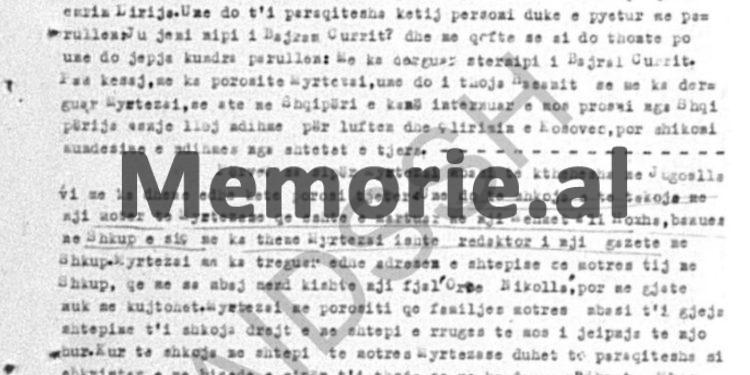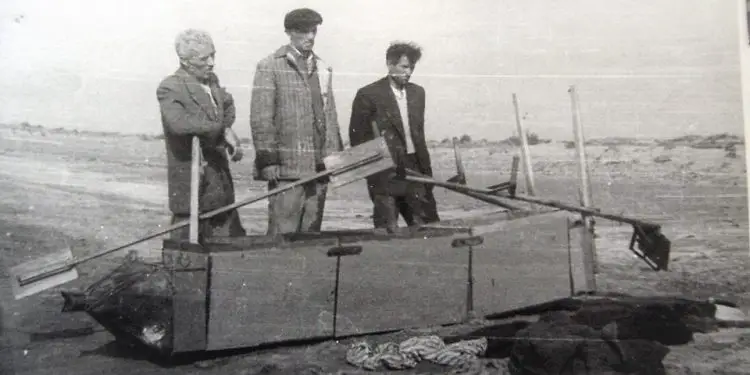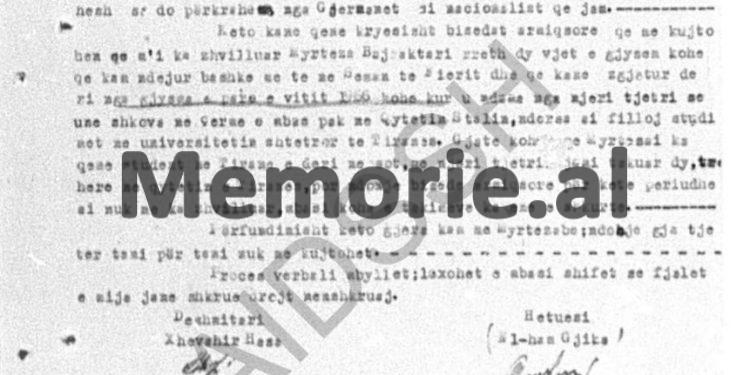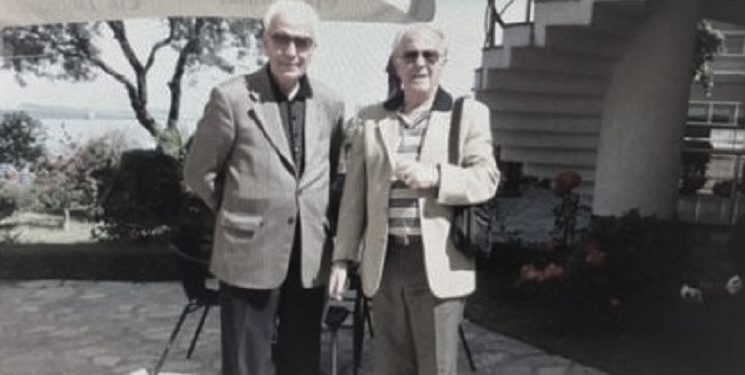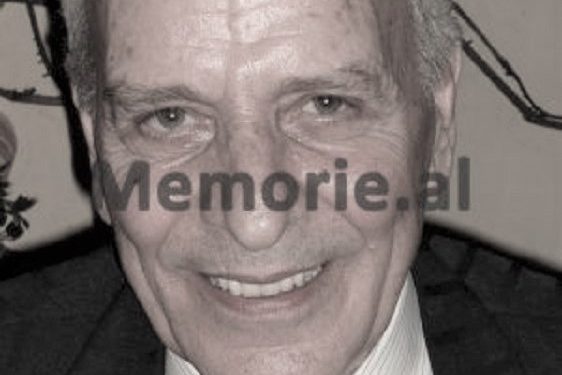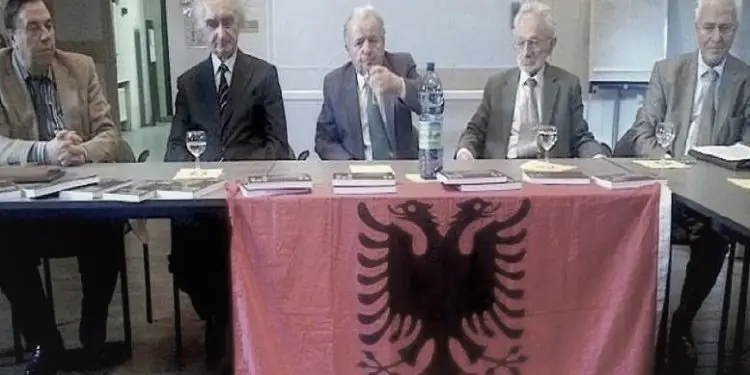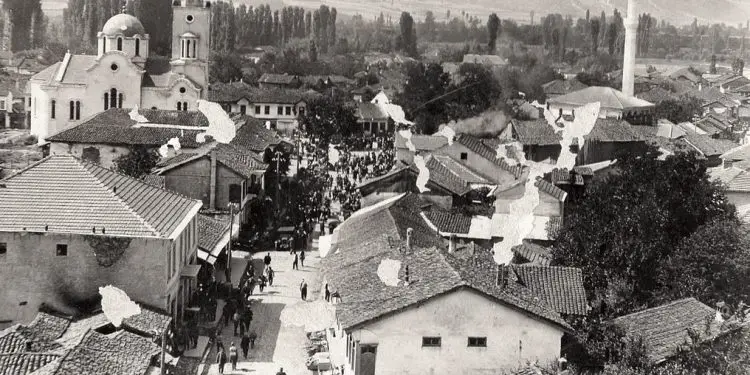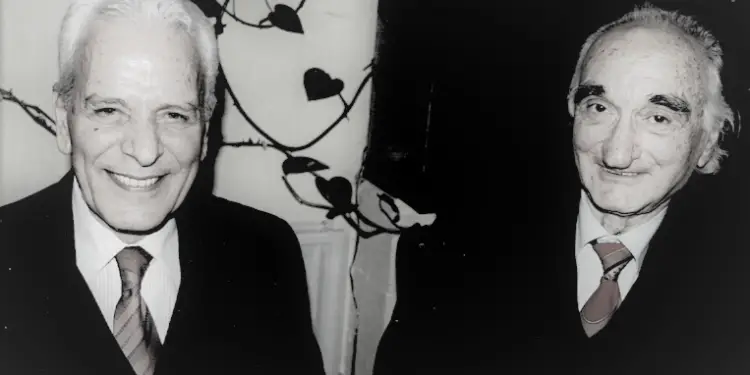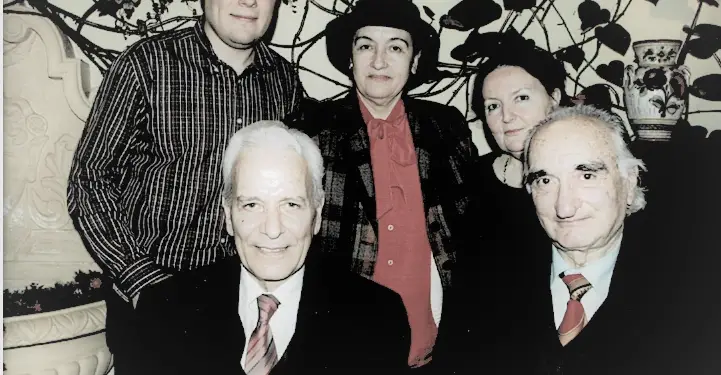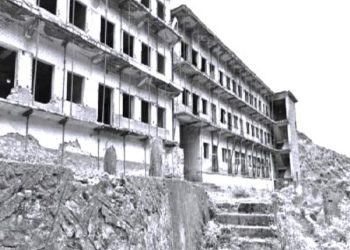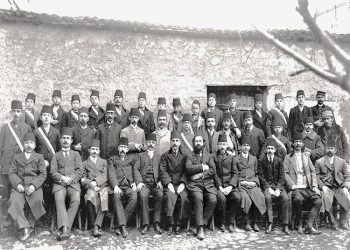Dashnor Kaloçi
Part fifteen
Memorie.al/ publishes some archival documents issued by the institution of the Authority for Information of Former State Security Files, where is the voluminous file (forms, investigative and court), of Myrteza Bajraktari originating from Gostivar, who after finishing school high school in the city of Tetovo, in 1952, began his higher studies at the University of Skopje, in the branch of Philosophy, where in addition to teaching he was employed as a journalist in the newspaper “Flaka e Vllaznimit” published in Skopje, from where he was fired soon after he published an article openly against the displacement of Yugoslav Albanians to Turkey and as a result, he was appointed as a teacher in the 7-year school “Shaban Zeneli” in Kumanovo. Myrtezai was arrested by the UDB in 1952, after he was part of a secret organization called the ‘Albanian National-Democratic Organization’, and he was sentenced to seven years in political prison, which he served in the Nis prison and Idrizovo. Escape from Yugoslavia and coming to Albania, where after staying for some time in the internment camp in Seman of Fier, he was given the right to high school, graduating from the University of Tirana in Language and Literature, but after refusing the appointment in the city of Berat, in 1971, he was arrested and sentenced to seven years in political prison, on charges of “agitation and propaganda”. Release from prison and leaving without work until the collapse of the communist regime and his appointment as Consul General of Albania in Switzerland, until 1993, and then his election as Honorary President of the Albanian League in the World, for the countries of Benelux, where he worked for the cause of Kosovo, until he passed away on December 11, 2020. The entire complete file of Myrteza Bajraktari, with the names of officials and officers of the State Security, the nicknames of collaborators, “colleagues” and The “compatriots” who followed and monitored him, the provocateurs in the investigation cells, the witnesses who appeared in court, the letters sent to Enver Hoxha and the high official instances where he demanded his innocence, etc., etc., are published for the first time by Memorie .al
Continued from the previous issue
Document with the record of the interrogation of the witness Xhevahir Hasa, by the investigator of the Ministry of Internal Affairs, Elham Gjika, dated 25 December 1970
PROCESS – VERBAL
Of the witness question
Fier on 25.12.1970
I, Elham Gjika, an investigator at the Ministry of Internal Affairs, ask as a witness Xhevair Hasa, the son of Maksut and Beqora, born in 1944 in Gostivar and resident in Fier, without a party, without a convict, married with two children, with a turner’s profession in the Fier Regional Plant. It was warned that he bears criminal responsibility, according to Article 220 of the Criminal Code, in case he gives false evidence.
Witness
(Xhevair Hasa)
Asked what he knew about the case, he stated:
In 1957, he came from Yugoslavia to Albania and settled in Llakatund of Vlora. From the end of 1963, he settled in Seman of Fier, where he stayed until the end of 1966 and then went to Lushnje.
During this period that I lived in Seman, I also met the Kosovar emigrant, Myrteza Bajraktari, who, as he told me, had come to Albania in 1962. Since Myrtezai and I were from the same province, so from Gostivar, we formed close friendships with each other.
Together, we stayed until 1966 and we had very good friendly relations. I want to emphasize that during this time, at different moments; Myrtezai has made hostile conversations with the Party of Popular Power and has specifically told me these things:
Allegedly, when he was in Yugoslavia, he served 7 years in prison, while he was sentenced twice more to 5 and 2 years in prison. After his release from prison, he collaborated with the UDB, ostensibly to camouflage his work in the patriotic organization that fought for the liberation of Kosovo.
Myrtezai told me that: I came here to ask for help for the liberation of Kosovo, and they deported me to Seman. And this is because the Party and the Government in Albania do not want the Kosovar people, because they left Kosovo themselves during the War, and under Tito’s regime, the Albanian brigades did not come to our lands to liberate us, but to harm us and together with the Yugoslav brigades, to leave us in captivity under Yugoslavia.
I well remember that in some cases, Myrtezai spoke ill of the partisans. He said that 28,000 martyrs were not killed in Albania and that the communists in this figure include other victims and does so for foreign policy. Myrtezai told me that under the Albanian communist regime, people suffer for bread and clothes and that this regime stands only in its dictatorship and oppression.
The youth, he pointed out, is like the work of an animal that just works and goes home because it has nowhere to have fun. Albania does not want the liberation of Kosovo, but I need Kosovo. The communist regime, Myrtezai said, would be overthrown. He told me that in Croatia and Macedonia, several illegal groups of anti-communist intellectuals had been set up.
In a case when Myrtezai and I were walking in the camp yard in Seman, in the summer of 1965, I remember being told that: in Yugoslavia, despite the fact that the regime there was against Kosovo, the people were free and did not suffer for bread like here. He told me that: the liberation of Kosovo can be done by armed intervention only by Germany, as the German state is anti-Slavic.
And Kosovo enjoyed its independence only during the Nazi regime. Sometime after I had made friends with Myrtezai, before we had these conversations, I told him that I came here in Albania as a child, because I had my father in Prrenjas of Librazhd. And I could not meet him, so I did not know what to do, stay in Albania, or flee to Yugoslavia.
Before he trusted me, Myrtezai told me that I should not flee to Yugoslavia, but later when he trusted me, he told me that I should flee to Yugoslavia as soon as possible. He told me that after you go to Yugoslavia, I apply to flee to Turkey. I finally accepted and after he drafted my application for repatriation, he gave me some messages which are:
After going to Yugoslavia, I had to meet a patriotic teacher named Hasan Bllaca, who lived in Skopje. I would give him the slogan, which is: “You are the nephew of Bajram Curri”?! If he said yes, then I would say: “Bajram Curri’s great-grandson sent me.” After that, Myrtezai told me to communicate to Hasani that from Albania do not expect any help for Kosovo, but go to other countries.
He also told me that when I went to Yugoslavia, I would communicate with his sister, who was married to Mehmetali Hoxha and they both lived in Skopje. I had to tell my sister that Myrtezain is not treated well as a patriot, but is kept isolated in the Seman camp, along with other Kosovars. So she had to intervene with their tribe in Turkey in order for them to attract Myrtezai there.
In several different cases, it must have been the end of 1965, before we left Semani, Myrtezai was indignant at the mistreatment they had received in Albania and spoke negative words about the Albanian communist regime.
He was so indignant that he told me that when he went to Turkey, he would lock himself in a room and write a book, when he would prove all the ill-treatment that the government of Enver Hoxha did to the people here.
Myrtezai told me that he would not stay in Turkey, but would go to Germany to live, because according to him there, as a nationalist I am, I will be supported. These were mainly hostile conversations, which I remember having with Myrteza Bajraktari, during the three years that I stayed with him in Seman, Fier.
After we separated in 1966, I went to Çermë and to “Stalin City”, while he began his studies at the State University of Tirana. During this period with Myrtezain, I met two or three times, when he was a student in Tirana. But I did not have any hostile conversations with him, as the meeting time was short. Anything new from him, I do not remember.
After the minutes were closed, I read it and after it was seen that my words were spelled correctly, I signed it.
Witness Xhevair Hasa Investigator Elham Gjika
Assistant Rasim Kërxhaliu
The document with the record of the interrogation of the defendant Fazllai Ramadani, by the investigator of the Directorate of Internal Affairs, Elham Gjika, dated 25 December 1970
PROCESS-VERBAL
In Tirana on January 29, 1971, I, the investigator of the Directorate of Internal Affairs, Irfan Shaqiri, interrogated the defendant, Faslli Ramadani.
The question started at 10.30 am
Question ended at 13.45 ‘
QUESTION: I have known Myrteza Bajraktar since 1970, on the occasion of the arrival of several visitors from Kosovo, and I wanted to meet one of them, who had come to Ramadan Shala in Tirana.
When I went to Ramadan’s house, the people of his family told me that Ramadani and the tourist (visitor), who had come from Kosovo, had gone to the Palace of Culture to drink coffee and I went straight there, met the visitor and Ramadan Shala, after I drank coffee and I went to the boulevard.
When we came before the Executive Committee of the district, we met by chance with Myrteza Bajraktari, about whom I had heard as a name, but until then I had not been given the opportunity to meet.
After this acquaintance, with Myrteza Bajraktar, I met and other times here in Tirana, as far as I remember, about a couple of times I met with Kapllan Resuli, who had a friend, but a conversation of a hostile character, from me , or between them in my presence, is not done.
Once, Kapllani and Myrtezai and I went to the Palace, where we drank coffee, and once in front of the State Bank in Tirana in the spring of 1970, I met Myrtezai after he finished school and was appointed to work in Berat.
One day I met Myrtezai at the bus station on Rruga e Kavajës, in August 1970. I asked he and he replied that he had returned from Berat, where he had gone to see work and when he returned, he had stopped in Lushnje to Kapllan Resuli, but how long he had stayed there and what they had talked about, he did not tell me anything. With that we did not prolong the conversation, he went to his work and I to my work.
I met Myrteza Bajraktar once at the Ministry of Education, where I also went to arrange the prayer I had made for my son, to study at the Polytechnic “7 Nëntori”, while Myrtezai, to arrange his work, so that he would not go in Berat. After we met, we asked each other and told each other concern. Myrtezai told me he would meet someone at the Ministry of Education.
He began to tell me that all the students who had graduated with him had been appointed to Tirana with good jobs, and I, Myrtezai told me, had been sent to Berat. Then he told me that we are both trying in vain, that they will not do anything to us, that they (the government) are waging a war against us Kosovars and that for us, bad things remain.
Myrtezai said that if he met the minister, he would speak openly in front of him, that against us Kosovars, there is a war and we are not treated well. Even Myrtezai said that for not treating Kosovars well, he would address the Central Committee, if he did not meet with the Minister of Education.
I advised Myrtezai, that: do not speak like this, but go to work where you were appointed in Berat, or if you want to stay in Tirana, hire a manual worker, since you have a wife in the theater, but he told me that: worker could not work, because I’m sick. Then I used such expressions, that: “here it bites me and it burns me, there is no”.
After Kapllan Resuli was arrested on November 4 or 5, 1970, Kapllan’s wife, Vera Resuli, called me and asked me about her husband, Kapllan, if he had not come to Tirana, to which I replied that he had not I have seen. She told me to ask if Kapllani had gone to Myrtezai and I went to Myrtezai to ask him, he replied that he did not know anything.
It did not take more than two days of telephone conversation with Vera Resuli, this came to Tirana and we talked again, about Kapllani’s case. This begged me to go once again to ask Myrtezai, that he had not heard anything about Kapllani, and I went back to Myrtezai, because they were not starting this work.
Again Myrtezai told me that he knew nothing about Kapllani. Talking to Myrtezana, I told him that Kapllani in Lushnja, when he came from Yugoslavia (Kosovo), as a visitor to Hamdi Berisha’s brother, in August 1970, Kapllani, as he himself had told me, had talked to the visitor, who was a teacher in Kosovo, about the liberation of Kosovo, that this work will be done only by Kosovars and without the help of the Albanian Labor Party and the Albanian Government.
When I told Myrteza this, he said that this conversation between Kapllani and the teacher, who had come from Kosovo, must have been agreed and he will have been arrested by the authorities. With that, I was separated from Myrtezai. I do not know anything else about Myrtezain.
As I said, they are real and I sign them with my signature. Memorie.al
Defendant Investigator
Fazlli Ramadani Irfan Shaqiri
Continues the last number




